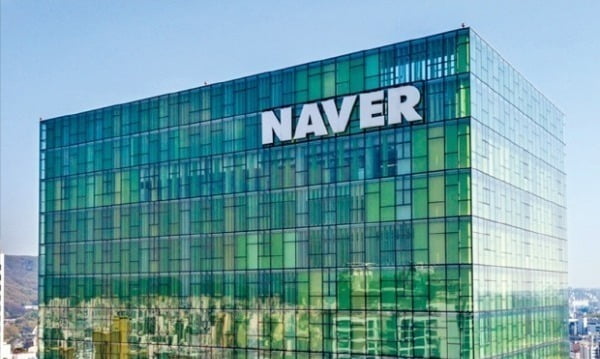Naver is considering the acquisition of Jeju Bank. It is a plan to get a banking business license and enter the financial industry directly. If successful, it is expected to have a considerable impact not only in large commercial banks but also in the financial industry, including Internet banks.
![[단독] Review of Naver and Jeju Bank acquisition](https://i0.wp.com/img.hankyung.com/photo/202101/02.19907089.1.jpg?w=560&ssl=1)
According to the financial sector and the investment banking (IB) industry on the 19th, it was found that Naver is in discussion to buy a stake in Jeju Bank. The largest shareholder of Jeju Bank is Shinhan Financial Group, which holds 75% of the shares, while the remaining shares are owned by related parties such as Jeju Bank. It is known that the value of 100% of Jeju Bank’s shares is about 150 billion won. An official from Jeju Bank said, “Naver has revealed its intention to take over and is discussing it internally.”
![[단독] Review of Naver and Jeju Bank acquisition](https://i0.wp.com/img.hankyung.com/photo/202101/AA.25054739.1.jpg?w=560&ssl=1)
Naver has been striving in many ways to advance into the financial industry. In 2018, Naver Financial, a financial subsidiary in partnership with Mirae Asset Daewoo, was created to expand the financial territory. However, new businesses in the financial sector were faced with challenges. After the abolition of the accredited certificate, Naver applied for a pilot project in the public sector, but was eliminated. It is also unclear whether the pilot of the my data project being promoted has passed. The Naver Bankbook, launched last year in partnership with Mirae Asset Daewoo, is also a misunderstanding that it is a financial product made by Naver, and is being limited in marketing by the supervisory authority.
Accordingly, it is interpreted that Naver has changed its strategy toward directly acquiring a banking license. According to the principle of’separation of bank accounts’, industrial capital can only own up to 10% of bank shares (15% for local banks). Naver is known to be considering ways to attract other financial companies as co-investors through a special purpose company (SPC) that has invested its stake. On the same day, in the securities market, Jeju Bank ended at 4435 won, a 10.88% rise.
Naver, full power to advance into the banking business… Efforts to acquire local banks with less regulation on equity
Naver has never officially announced its plans to enter the banking business, but the financial sector was paying close attention to the possibility. Jeju Bank’s business area is limited to Jeju Island, but Naver seems to have decided that it can overcome regional limitations as non-face-to-face operations have been greatly strengthened since last year.
Jeju Bank, which was launched in 1969, was incorporated as a subsidiary of Shinhan Financial Group in 2002. There are a total of 34 branches in Jeju, including 25 branches, 6 branch offices, and 2 other branches in Jeju. The main focus is on retail sales, as interest income using the loan-deposit margin reaches 90% of the total profit.
It is known that Naver plans to do its best to acquire a banking business license even if the acquisition of Jeju Bank fails. An official from the investment banking (IB) industry said, “Naver is making considerable efforts to obtain a banking license. It is highly likely that even if it is not Jeju Bank, it is highly likely to continue reviewing plans to acquire other banks.” As local banks are relatively less regulated in equity, it is also discussed how to use each bank’s network by acquiring a 15% stake for each local bank.
It is also of interest that Shinhan Finance will sell its stake in Jeju Bank in order to organize its non-core sectors. In addition to Shinhan Bank, Shinhan Finance has Jeju Bank and Shinhan Savings Bank. Jeju Bank has made significant profits due to its solid business base in the region, but it was overtaken by Shinhan Savings Bank for the first time last year. In the first half of last year, Shinhan Savings Bank recorded a net profit of about 21 billion won, and Jeju Bank recorded about 17 billion won. Jeju Bank’s non-face-to-face business has been strengthened, but on its own, it has revealed limitations in its expandability. Shinhan Financial Group made a decision to sell Jeju Bank to strategic investors (SI) such as domestic financial companies last year, but no actual discussions took place.
For this reason, Shinhan Finance also promoted a plan to turn Jeju Bank into an Internet bank. It was a plan to transform a bank centered on stores in Jeju into a nationwide digital financial platform with investment from big tech companies such as Naver. To this end, investment attraction was promoted until last year, but investors are known to have been struggling due to uncertainty about future banking prospects. An official from Shinhan Finance said, “As there are several bank licenses under the holdings, we are struggling with ways to achieve efficiency and division of labor.”
Reporter Kim Chae-yeon/Jeong So-ram/Kim Dae-hoon [email protected]
Ⓒ Hankyung.com prohibits unauthorized reproduction and redistribution
